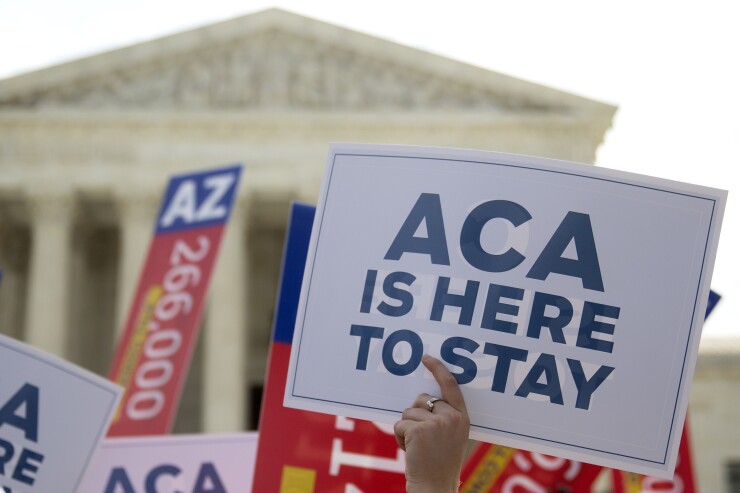The Treasury Department and the Internal Revenue Service issued
The Democrats leading the main tax committees in Congress hailed the move, but a Republican leader said the move ran counter to the law, probably exposing it to legal challenges. The changes amend the regulations regarding eligibility for the premium tax credit to provide that affordability of employer-sponsored minimum essential coverage for family members of an employee is determined based on the employee's share of the cost of covering the employee and those family members, not the cost of covering only the employee.
The final regulations also add a minimum value rule for family members of employees based on the benefits provided to the family members. The rules affect taxpayers who enroll, or enroll a family member, in individual health insurance coverage through a health insurance exchange and who may be allowed a premium tax credit for the coverage.
House Ways and Means Committee chairman Richard Neal. D-Massachusetts, and Senate Finance Committee chairman Ron Wyden, D-Oregon, applauded the final regulation, predicting that it would lower health insurance costs for Americans with unaffordable employer-sponsored coverage by fixing the "family glitch." They had pushed for the changes back in May.

"The Affordable Care Act ushered in a new era for our health care system, and the premium tax credits have made way for the lowest uninsured rate on record," Neal and Wyden said in a joint statement Tuesday. "As we highlighted in our
Under the change they suggested back in May, instead of determining the affordability of an employer plan, and the associated eligibility for the premium tax credit, based solely on the cost of self-only coverage, the regulation would look to the cost of coverage that includes the employee's family members. That way, it would ensure that those family members without affordable family coverage through an employer could benefit from the premium tax credit to purchase high-quality health insurance marketplace plans. They said they believed that was the appropriate reading of the 2010 health care reform law, also known as Obamacare.
However, Rep. Kevin Brady, R-Texas, the ranking Republican on the House Ways and Means Committee, contended that the changes violated the text of the statute. "President Biden's dangerous and illegal decision to unilaterally rewrite Obamacare without Congress is deeply troubling," he said in a statement Tuesday. "This is no 'family glitch.' It's the letter of the law Democrats passed, which is why the Obama-Biden Treasury rejected this very same approach as not legal only a few years ago. Like the illegal school debt bailout, the Biden Administration is pursuing tens of billions in new taxpayer spending that will only worsen 40-year high inflation. With health care insurance inflation rising 17%, Democrats should be working with Republicans rather than continuing to throw money at the problem."




